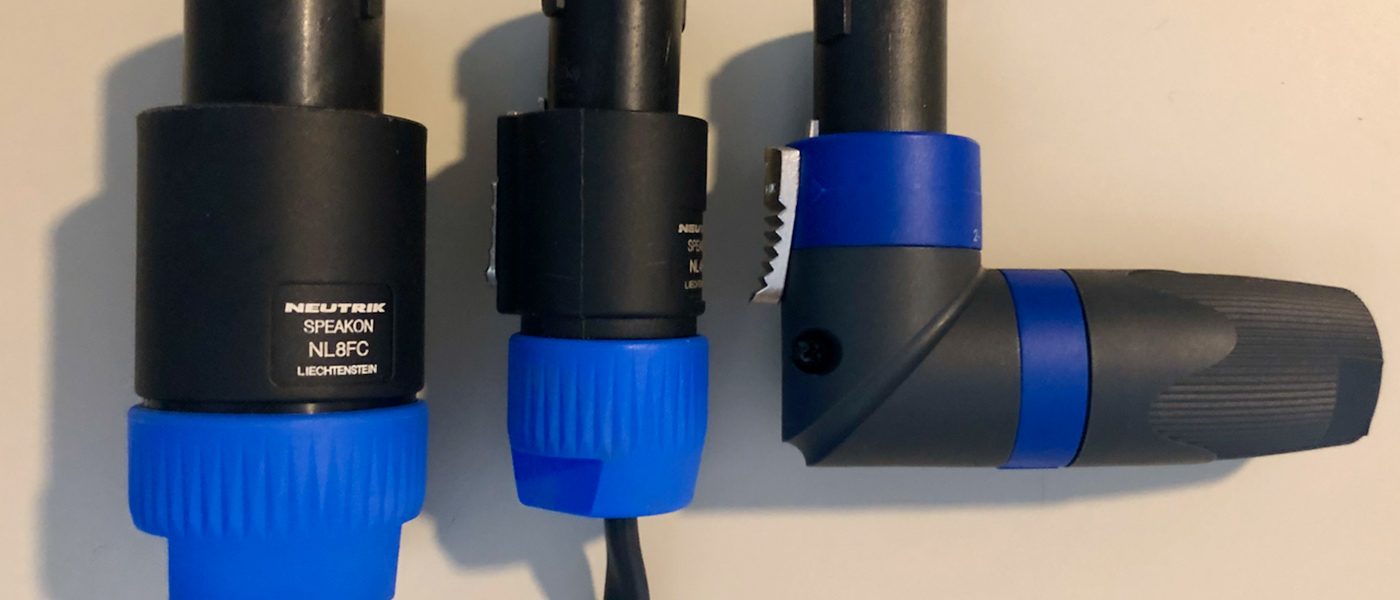1/4" Connectors

1/4" connectors, also known as phone or jack connectors, are commonly used for connecting guitars, keyboards, and audio interfaces to mixing consoles, amplifiers, and powered speakers. These connectors are identifiable by their metal barrel shape and have a single tip ring sleeve (TRS) or two tip sleeve (TS) configurations.
One of the main benefits of 1/4" connectors is their versatility, as they can handle both line-level and instrument-level signals. They are also relatively inexpensive and easy to find in most audio equipment stores.
TRS Connectors
TRS connectors are commonly used in stereo headphones, mixers, and audio interfaces. They have three contacts, namely tip, ring, and sleeve. The tip is used for the left channel, the ring for the right channel, and the sleeve for the ground connection.
The main benefit of TRS connectors is their compatibility with balanced audio signals, which can help reduce noise and interference in the audio signal.
3.5mm Connectors
3.5mm connectors, also known as mini-jack connectors, are often found in portable audio devices like smartphones, laptops, and MP3 players. They are small in size and have the same TRS configuration as 1/4" and TRS connectors, but with a smaller diameter of 3.5mm.
While 3.5mm connectors are convenient for portable audio devices, they are not ideal for professional audio production setups as they are prone to breaking and have a shorter lifespan than other connectors.
XLR Connectors
XLR connectors are commonly used in professional audio applications, including microphones, mixers, and powered speakers. They have three pins (male) or sockets (female) and are identifiable by their circular design.
One of the main benefits of XLR connectors is their ability to handle balanced audio signals, which can help reduce noise and interference in the audio signal. They are also durable and can handle significant amounts of power and signal without compromising sound quality.
RCA Connectors
RCA connectors are commonly used for consumer-grade audio equipment, including home theater systems and soundbars. They have two contacts, a center pin (positive) and an outer ring (negative), and are commonly found in red and white colors for the left and right audio channels.
While RCA connectors are cheap and readily available, they are not suitable for professional audio production setups due to their relatively low signal-to-noise ratio and susceptibility to signal interference.
Speakon Connectors
Speakon connectors are commonly used in loudspeaker systems and portable audio setups. They are identified by their unique locking mechanism, which ensures a secure connection and prevents accidental disconnection.
The Speakon Connector can handle higher power and signal levels than most other audio connectors, making them ideal for large-scale audio productions. They are also durable and can withstand significant wear and tear in rugged audio environments.
Conclusion
In summary, audio connectors play a vital role in audio production setups, helping to connect audio devices and transfer electrical signals between them. Each type of audio connector has its strengths and weaknesses, and understanding how to choose the best connector for your audio needs is essential.
For professional audio production setups, Speakon connectors offer a secure and reliable connection, while XLR connectors are ideal for balancing audio signals and reducing noise and interference. Whether you are a professional audio engineer or a hobbyist, choosing the right audio connector can help you achieve the best results in your audio productions.